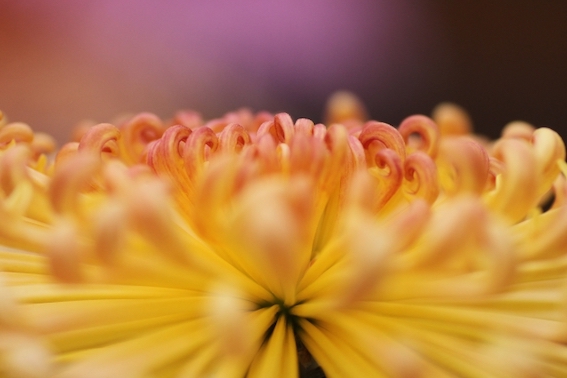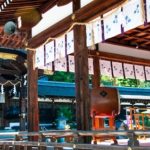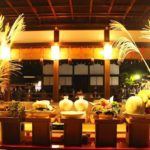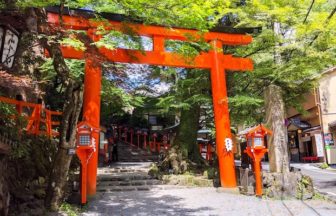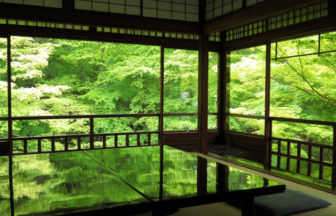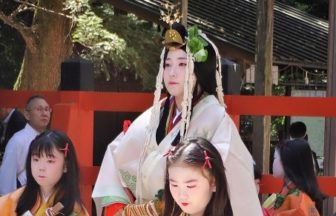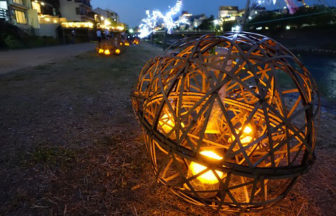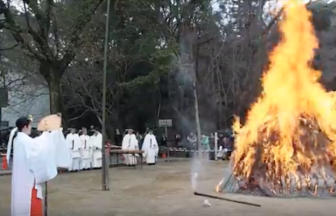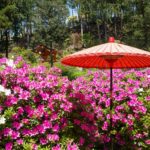September was called the month of chrysanthemum in the lunar calendar、because the chrysanthemum blooms beautifully in that month.
“The cherry blossoms is in spring, the chrysanthemum is in fall (at the peak of beauty)”
According to the phrase, each flowers represent the image of Japanese culture.
This time, we’d like to tell you about the event of the chrysanthemum in Kyoto.
What’s about The Chrysanthemum Ritual / The Choyo Ritual
The chrysanthemum was imported as medicine from China to Japan in ancient times
At that time in China, they believed that the chrysanthemum has the power of longevity.
They had the legend of a village where people drinking water from a source surrounded by chrysanthemum could live more than 100 years old, and also a myth of a child who lived for over 700 years, thanks to its supernatural powers.
It was introduced to Japan with these legends and became well established as Choyo Ritual on September 9th in Heian period (AC9-11).
Nobels at that time were watching at the chrysanthemums, composing the poet while drinking a chrysanthemum sake, and cleansed their body with a cotton containing the scent and dewdrops from the chrysanthemum.
Much as they do in the West, certain numbers hold significant meaning in Japanese culture.
According to the concept of Yin and Yan, odd number is considered to be an auspicious number (Yan), and the 9 is considered to be the number that Yan reaches to an extreme.
People in old times thought September 9th was either a very important day nor an inauspicious day, so they held the ritual and purified their body and spirits.
Most Japanese don’t know Choyo Ritual?
The Chrysanthemum Ritual is other name of the Choyo Ritual.
Choyo is supposed to be a turning point of the season that is called sekku.
There are popular sekku in Japan, January 7th, March 3rd, May 5th, and July 7th.
September 9th is the most important sekku because 9 is the biggest odd number (1 to 10).
However people are not interested in the Choyo Rituals compared to the other sekku.
The reason why people are not interested in it is the difference between a lunar calendar and solar calendar.
September in a lunar calendar was a beautiful season of the chrysanthemum, on the other hand in a solar calendar, it is still lingering summer heat.
Also in the ritual, the chrysanthemum is used a lot and people can’t hold the ritual without it by being different to others.
The ritual seem to be for adults more than children because drinking sake or watching the chrysanthemum are the main event of the ritual.
The ritual isn’t festival thing compared to the others, but Choyo Rituals held in Kyoto are popular.
We recommend you to visit earlier if you observe the ritual.
The Chrysanthemum Ritual / The Choyo Ritual held in Kyoto
Kikka Ritual at Kifune Shrine
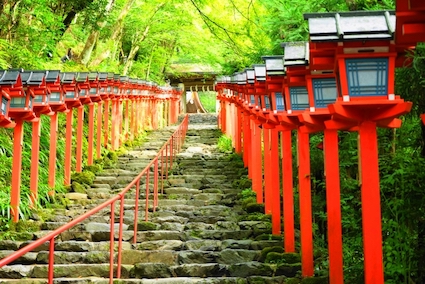
Miko (shrine maiden) devote their dance with holding the chrysanthemum.
Visitors will be offered Kiku Japanese rice wine (sake with floating chrysanthemum petals) at the feast after the ritual. First 30 visitors can enter the inside of main hall.
【Information】
Venue:
Kifune Shrine; 180, Kuramakifune cho, Sakyo ku, Kyoto
Date & Time:
September 9th 11:00~
Access:
Kyoto Station → Kokusai kaikan (国際会館)Station on Subway Karasuma line→ Kokusai kaikan mae (国際会館前) bus stop on the #52→ “Kifuneguchi (貴船口)→”Kifuneguchieki mae(貴船口駅前)” bus stop on the Kyoto bus #33 →5-minute walk from “Kifune(貴船)” bus stop.
Choyo Ritual and Karasu Sumō at Kamigamo Shrine
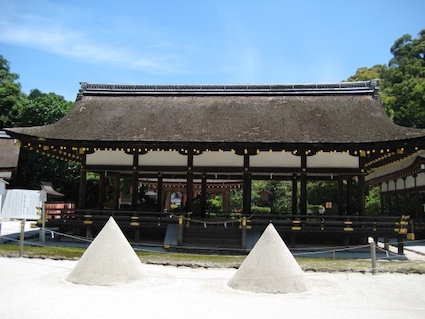
In the ritual, priests devote some chrysanthemum and pray for longevity.
Karasu Sumō is crow sumo-wrestling ceremony to exorcize evil spirits and pray for a good harvest.
The Saiō-dai, a woman chosen to represent an imperial princess for the famous Aoi Matsuri,will make an appearance.
It’s a good opportunity to see Saiō-dai, looking resplendent in multi-layered kimono and classic hairstyle.
【Information】
Venue:
Kamigamo Shrine; 339, Kamigamo motoyama, Kita ku, Kyoto
Date & Time:
September 9th 10:00~
Access:
Infront of “Kamigamo jinja mae(上賀茂神社前)” bus stop on the Kyoto Bus #4 at Kyoto Station
15-minute walk from “Kitayama(北山)” Station on Subway Karasuma line
Choyo Ritual and Gratitude for a Card Festival at Ichihime Shrine
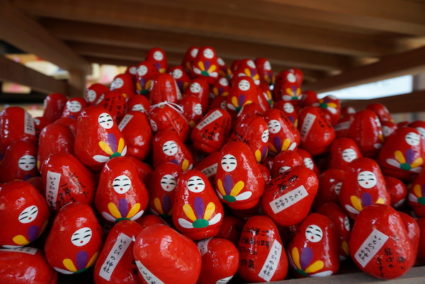
Ichihime Shrine issued the license of the market in the old time. They purify the cards that are unused and expired.
Of course they offer Kiku Japanese rice wine on the same day.
【Information】
Venue:
Ichihime Shrine; Kawaramachi Gojo Sagaru Nifhiiru, Shimogyo ku, Kyoto
Date & Time:
September 9th 11:00~
Access:
3-minute walk from “Kawaramachi Gojo Shomen(河原町五条正面)” bus stop on the Kyoto City Bus #4,205,17 at Kyoto Station
5-minute walk from “Kiyomizu Gojo(清水五条)”Station on Keihan line
10-minute walk from “Gojo(五条)”Station on Subway Karasuma line
Do you need more information?
You should receive such local information of Kyoto by an application “KoI APP”.
With this application, even if you don’t have Wi-Fi, you can find nearby stores and so on.
You can install the application from the following URL.

